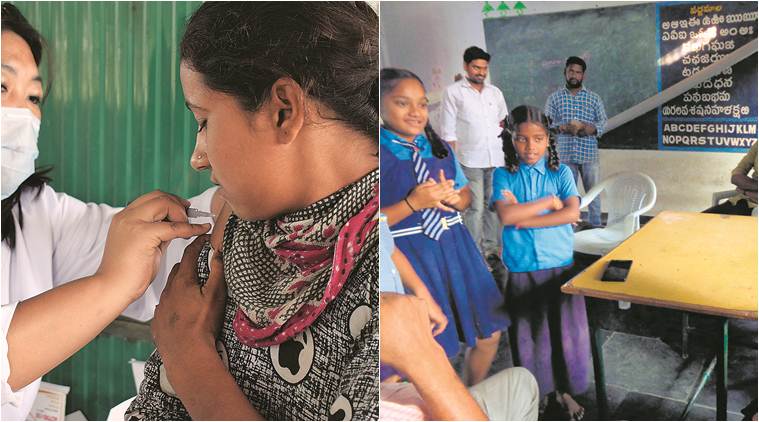Urban design and social builder Geeta Mehta on creating dialogue, leveraging social capital and building relationships
Questions around social good are often directed towards donations or loans but Geeta Mehta asks a different set of questions. Is financial currency the only operative force in society?
 Geeta Mehta
Geeta Mehta
God may be in the details, but the goddess is in the questions. Once we begin to ask them, there’s no turning back,” says Gloria Steinem in her book Moving Beyond Words. She argues that instead of fitting women into middle-class professions, their experience itself should be a part of the process. Questions around social good are often directed towards donations or loans but Geeta Mehta asks a different set of questions. Is financial currency the only operative force in society? What about social networks and social capital that allows people to be empowered? Academician and social builder Mehta introduced the idea of SoCCs (social capital credits) into communities across India, Africa (Ghana and Kenya), and the US, helping them incentivise their ability to help themselves. Like carbon credits or a loyalty programme, SoCCs works to help people in grassroots to work to their biggest strength — their social will and connections.
It all began in 1999, when Mehta, a trained architect, met MS Swaminathan, father of India’s green revolution. She was then in Tokyo with her husband Krishen, who was posted there. The agriculture scientist suggested ways that people abroad could engage with issues back home. Mehta, who was wrestling with her need to help the lesser-privileged in society, began travelling with Swaminathan to villages in Tamil Nadu. “I learned then that if I have to do anything, it would be pro-poor, pro-women and pro-environment. With his advice, Asia Initiatives (AI) was born,” says New-York based Mehta. She was in Delhi recently for a lecture at her alma mater, School of Planning and Architecture. “My research has been about social capital; how do you bring people together, which is something that informs social connections. I think many problems in the world today happen because everything is measured with money. What if every project, be it government or private, is measured on a triple bottom line that accounts for financial, social and ecological profits? Will the answers change then?” says Mehta.
 From girl child education to vaccinations, the SoCCs programme works on the ground with communities.
From girl child education to vaccinations, the SoCCs programme works on the ground with communities.
As an adjunct professor of architecture and urban design at Columbia University and Founder-President, AI, Mehta is working with colleagues and university students in Pune on the Mula Mutha river that runs through the city, and which has seen high pollutant levels recently. “In the outskirts, there is still agriculture. We suggested that they bring it into the city on both sides of the river. Through phytoremediation and agriculture, there can be income generation, and also the possibility of fresh fruits and vegetables. There is currently resistance to this because of the high land prices, but we are saying, let’s look at the triple bottom line, why should you calculate profits with only one-third of the accounting table?”
In Lucknow, Mehta informs, AI is working with nearly 650 girls, by helping them stay in schools. Besides digital training, they are also providing counselling about reproductive health care, and how to handle parental pressure when it comes to early marriage. These girls return to their community and teach another 30 children in their neighbourhood, so quite literally, through ripple effect, many are empowered through SoCCs. AI has similar programmes in Ahmedabad, Ghana, Kenya and Washington. In India they have 14 live projects.
Through a dialectic, ‘SoCCratic dialogue’ AI works with each community to develop a SoCC earning menu tailored to local needs. Earning items could include vaccinating children, sending girls to high school, managing waste, providing childcare, planting trees, or paving streets. SoCCs redemption menus work for the entire community, which includes school fees, healthcare, skills training classes, home repairs, and telephone time. The ‘SoCC Market’ thus works with credits given to individuals and the community.
“SoCCs has proved that it’s ultimately about relationships. In Dharavi, where I co-founded URBZ (a research collective that emphasises on participatory design), we’ve seen how people leverage their own strengths to improve their neighbourhoods. There are 90 communities within Dharavi, who are supporting and helping each other, and if you can acknowledge and reward these capabilities, everyone benefits,” she says.
While issues of women across the world are largely the same, each continent where they work, poses different problems. From illiteracy and substance abuse in Washington to break down of families in Kenya to child pregnancies in India, the need for interventions goes beyond monetary benefits. Supporters and admirers of SoCCs have called it “the most transformative and simple idea since Mohammad Yunus launched the micro-credit movement.”
The idea of social justice permeates into conversations about successful cities as well. “My definition of a successful building has changed since I graduated. What does a building do to a person who doesn’t enter it? Does it have a comfortable sidewalk? Does it have a porosity that a passer-by can enjoy? Is it throwing out toxins from its air-conditioners? How does it contribute to the ecology? Does it have excess glass that makes birds dash against them? Do I feel safe walking by it?” she asks.
Ultimately it’s in creating dialogues that make societies and cities liveable. “It’s only when people take charge that development happens,” she says.



- 01
- 02
- 03
- 04
- 05
























